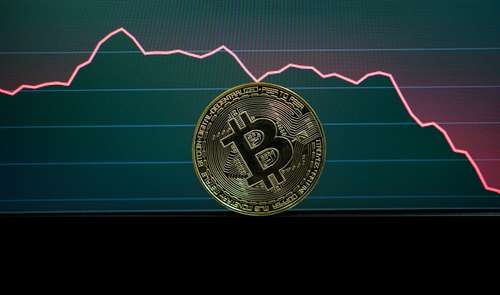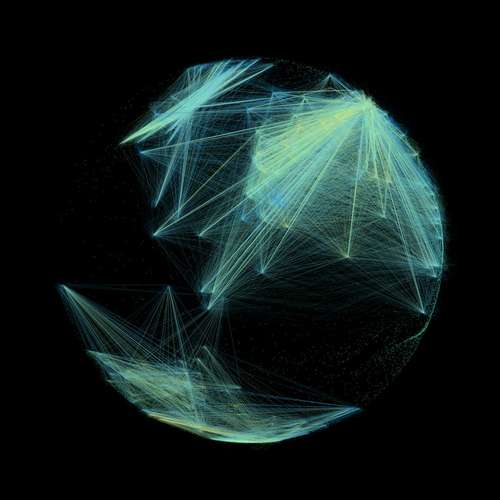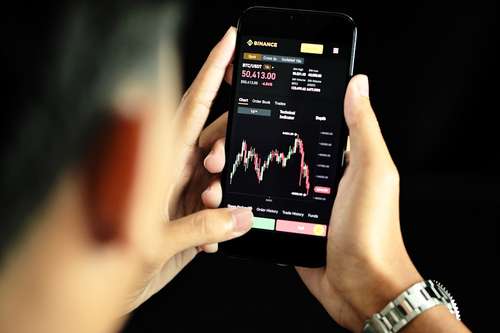The US Federal Reserve has sparked a global trend of increased interest rates by raising its benchmark rate by 0.25 percentage point, with a good likelihood of six more hikes this year to combat the greatest inflation in 40 years.
In the face of rising inflation, Fed Chairman Jerome Powell announced on Wednesday (Thursday AEDT) that the Fed would raise its benchmark rate from zero, the first increase since 2018, and the start of a rate hike cycle that will see the funds rate near 1.875 percent by December.
The Fed hinted at rising concern about inflationary pressures in a statement released after its two-day meeting. Inflation has been high due to "broader pricing pressures," according to the statement, and the crisis in Ukraine and "associated events are anticipated to exert more upward pressure on inflation."
"The implications for the US economy are extremely unknown," the Fed said in a statement accompanying its two-day meeting. "However, in the near term, the invasion and associated events are likely to create extra upward pressure on inflation and weigh on economic activity."
"Even after the recent surge in rate expectations, the Fed's own predictions are hawkish," said Paul Ashworth, Capital Economics' senior US economist.
"The median dot in the Summary of Economic Projections now predicts seven interest rate hikes in 2022 — up from the three projected at the December meeting," Goldman Sachs economists said in a statement, referring to the graphic representation of each voting member's short-term rate outlook.
The likelihood of increased interest rates complicates an already difficult political situation for US President Joe Biden and Democrats in the run-up to midterm elections later this year, when record inflation and cost of living, boosted by the highest gasoline prices on record, will play a key role.
The White House has attempted to blame growing inflation on Russia's invasion of Ukraine, which has wreaked havoc on global energy markets, first driving up oil prices to their highest level since 2008, but prices have since fallen to just under US$100 a barrel.
The Fed's action on Wednesday was a remarkable shift from only two years ago, when it reduced rates to near zero and initiated a series of initiatives to stabilize markets and assist the economy as Covid-19 shut down large swaths of the economy. In 2020, the pandemic resulted in a devastating two-month recession and massive job losses.
Since then, the economy has recovered thanks to significant federal stimulus and immunizations, and inflation has risen sharply in the last year. The present experience contrasts sharply with the Fed's seven-year period of near-zero interest rates following the 2008 financial crisis.
According to the Fed's favored metric, inflation jumped 6.1 percent in January from a year earlier. Inflation in the core, which includes food and energy, increased by 5.2 percent. Core inflation is expected to conclude the year at 4.1 percent, up from 2.7 percent in December, according to most officials. They expect interest rate hikes to bring inflation down even more, to 2.6 percent by the end of 2023 and 2.3 percent the following year.
Even before Russia's invasion of Ukraine three weeks ago, Fed policymakers were concerned that inflation would not decline as quickly as they had anticipated a few months ago. With the unemployment rate falling to 3.8 percent in February and annual wage growth nearing its highest level in years, the labor market in the United States has tightened considerably.
Mr Powell lay the groundwork earlier this month for the idea of hiking rates in half-percentage points rather than quarter-point increments later this year. He also said that the Fed may need to hike rates to a point where economic growth is purposefully slowed.
According to economists, there is a growing possibility that Mr Powell will be pressured to raise rates to levels that may send the economy into recession. This would be especially true if policymakers conclude that consumers' and businesses' expectations of future inflation are rising, or if officials see growing evidence of a wage-price spiral in which workers coping with rising prices demand higher pay, prompting businesses to raise prices even higher.




